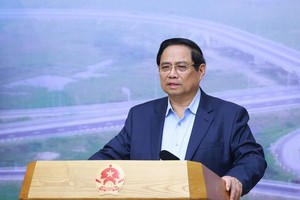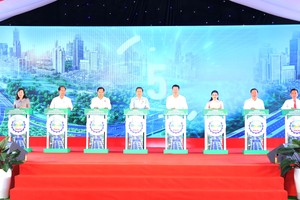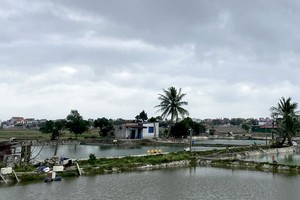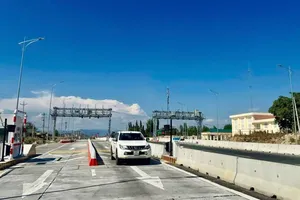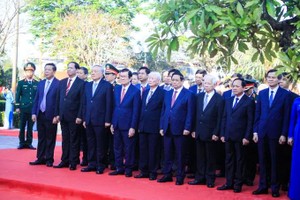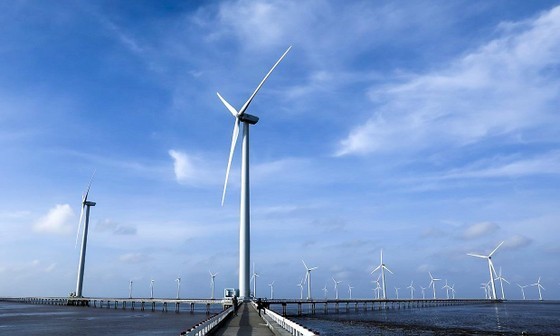 |
Vietnam is likely to face electricity shortages |
The National Assembly Standing Committee’s 27th session today discussed the implementation of policies and laws on energy development in the period 2016-2021.
According to the report of supervisors, the supply and import of basic energy meet the requirements of socio-economic development, national defense and security.
From 2016 to 2020, Vietnam's total preliminary energy supply had an average increase of about 8.7 percent per year. Total final energy consumption increases by an average of 6.8 percent annually. Overall, the electricity industry in the period 2016-2021 has gained remarkable achievements. Quality products produced throughout the system grow every year ensuring adequate basic supply. The electrical system operates safely and stably.
Total produced and imported electrical products and total electronic products consumed in 2020 all increased 1.5 times compared to 2015, reaching 247 billion kWh and 216.9 billion kWh. The average amount of commercial electricity per capita increased from 1,567 kWha per person in 2015 to 2,219 kWh/person in 2020.
The rate of power network construction according to the adjusted Power Plan VII for the period 2016-2020 reached fairly good. For instance, the 220kV power network, 500kV power network for lines and 500kV station reached over 52.97 percent, 58.55 percent, and 87.07 percent respectively.
However, according to the supervision team, domestic supplies are not enough to meet requirements, leading to the need to import increasingly large quantities; therefore, the goal of ensuring national energy is currently threatened.
According to the monitoring team, the rate of storage and production of coal, crude oil and natural gas is decreasing. Specifically, the reserve of coal, crude oil and natural gas is just enough for more than 70 years, 20 years, and 40 years respectively. The country will be dependent on the import of oil and natural gas meanwhile, the cost of importing coal, oil and natural gas in total national content income is increasing more.
Inadequacies in energy supply, especially primary fuel preparation, the annual electricity supply plan and operation of the national electricity system, and gasoline and oil reserves have led to local gasoline and oil shortages at the end of 2022 and electricity shortages in the North in early 2023, causing frustration in public opinion.
Supervisors also pointed out several risks to the national energy security in the coming time including delays of many projects such as Vietnam Oil And Gas Group’s Long Phu 1, Thai Binh 2, and Song Hau 1 coal power plants and Vietnam National Coal - Mineral Industries Holding Corporation’s Na Duong II, Quynh Lap I, Cam Pha III, Hai Phong III projects; and the O Mon gas - electricity chain project.
Furthermore, the implementation of planning for energy sub-sectors also has many limitations and inadequacies, especially in the implementation of Power Plan VII and adjusted Power Plan VII for the development of solar power, wind power, and small hydropower. Specifically, the additional approval of 168 solar power projects with a total capacity of 14,707MW, 123 wind power projects with a total capacity of 9,047MW, 390 small hydropower projects with a total capacity of 4,138MW in the electricity development planning for the period 2016-2020 has affected electricity generation and transmission to the system.
Last but not least, according to supervisors, inspectors have detected violations in the field of the economy resulting in a loss of VND15,170 billion in the period 2016-2021. Some 5,960 square meters of land were reclaimed while 246 organizations and 724 individuals received administrative penalties. Some 23 cases were transferred to investigation agencies for further investigation.
The supervision team recommended amendments and supplements to laws such as the Electricity Law, the Law on Economical and Efficient Use of Energy, the Law on Minerals, and the Law on Chemicals.
It is necessary to issue a plan to implement Electricity Planning VIII, the National Energy Master Plan, and a list of important and urgent national energy development projects in the period 2023-2030.
The monitoring team also proposed that the National Marine Spatial Plan for the period 2021-2030, with an orientation to 2045 should be submitted for the National Assembly’s approval. The plan will be for investment attraction of onshore wind power and electricity, and offshore wind in 2023.
